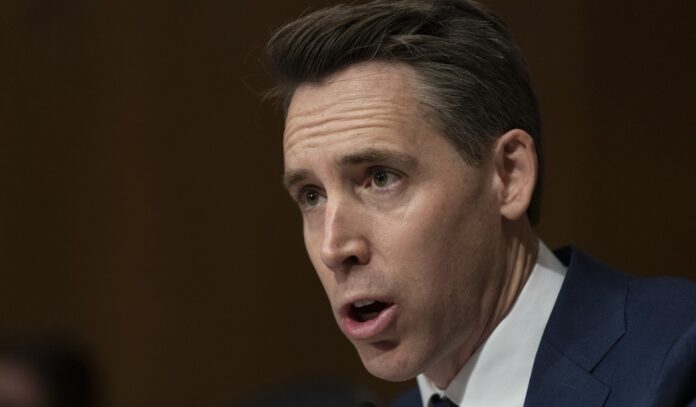Republican Senator Josh Hawley of Missouri has introduced an amendment to the Truth in Lending Act that would limit the interest rates on consumer-held credit cards to 18 percent. The bill comes as American consumer debt has topped the $1T level for the first time in history.
“Americans are being crushed under the weight of record credit card debt—and the biggest banks are just getting richer,” said Senator Hawley. “The government was quick to bail out the banks just this spring, but has ignored working people struggling to get ahead. Capping the maximum credit card interest rate is fair, common-sense, and gives the working class a chance.”
As noted above, cumulative consumer credit card debt recently surpassed one trillion dollars, the highest level in history. Last year, many major credit cards soared past the 30 percent interest rate threshold for the first time, and now the average rate of interest is hitting a record level. This means working people face higher financial burdens at the same exact time the biggest banks are booking bumper profits and wielding immense power over the market.
In his comments, Hawley states without blatancy the disastrous effects of Bidenomics on the consumer. Since Biden took office, the cumulative inflation rate is 18.6 percent. Consumer prices are continuing to rise across the board. The percentage of households living paycheck-to-paycheck in the United States is 61 percent. A further breakdown reveals this as an issue spanning all economic sectors:
- The share of low-income consumers — those earning less than $50,000 annually — living paycheck to paycheck increased the most, rising from 74 percent in July 2022 to 78 percent in July 2023.
- Among consumers earning between $50,000 to $100,000 annually, 65 percent lived paycheck to paycheck as of July 2023, compared to 63 percent in July 2022.
- Meanwhile, the share of high-income consumers — those earning more than $100,000 annually — living paycheck to paycheck increased the least, just one percentage point from 43 percent in July 2022 to 44 percent this year.
Meanwhile, in the second quarter of 2023, the four largest banks in the United States racked up a cumulative $30B in profits, a 30 percent increase from the 2022 2Q numbers.
What Hawley’s measure does not address is the near-total lack of restrictions on card issuers to cancel non-delinquent accounts. The usual reasons vary. A primary consideration is believing a customer is overextended with the number and overall amount owed percentage on multiple cards, even if the card in question has no issues. Not using a card often enough to its issuer’s liking can also bring on a cancellation. It takes little effort to envision a massive increase in baseless card discontinuations should the bill be signed into law, thus putting even more pressure on an already tightly squeezed consumer base.
In the “politics makes strange bedfellows” department, Hawley’s bill closely mirrors a measure introduced in 2019 by Rep. Alexandria Ocasio-Cortez (D-NY) and Sen. Bernie Sanders (I-VT) that would have prohibited a credit card issuer charging more than 15 percent interest. The bill never came to a vote.
It will be interesting to see if Hawley’s measure gains traction. The Democrats, either directly or through their media acolytes, have insisted the economy is in terrific shape even as anyone and everyone who has bought groceries or a tank of gas can testify otherwise. However, the Democrats also relish portraying themselves as the people’s champions, always sticking up for the little guy against evil, greedy corporations. How will they handle a (gasp!) Republican proposal to limit corporate profits at the consumer’s expense?




